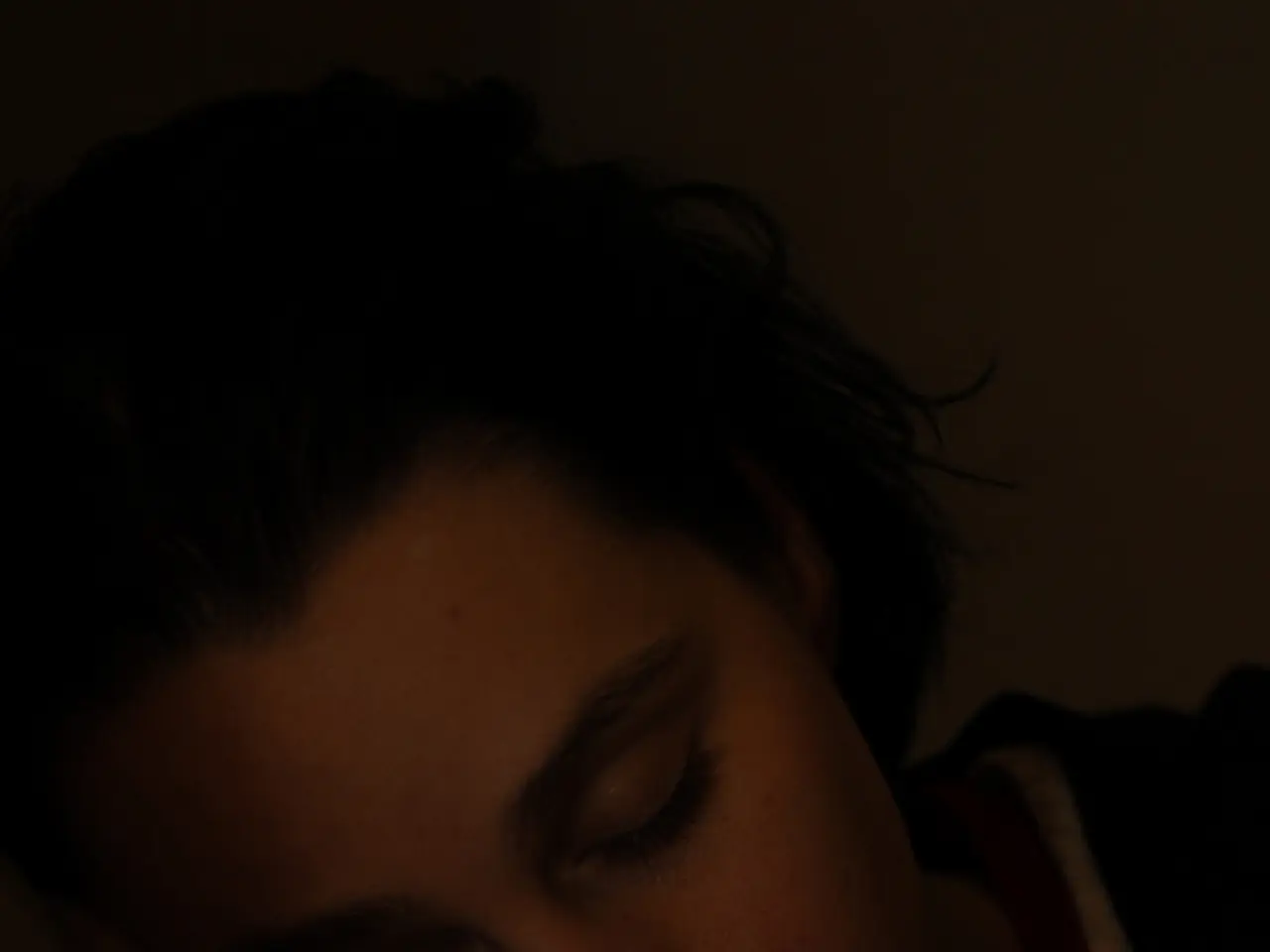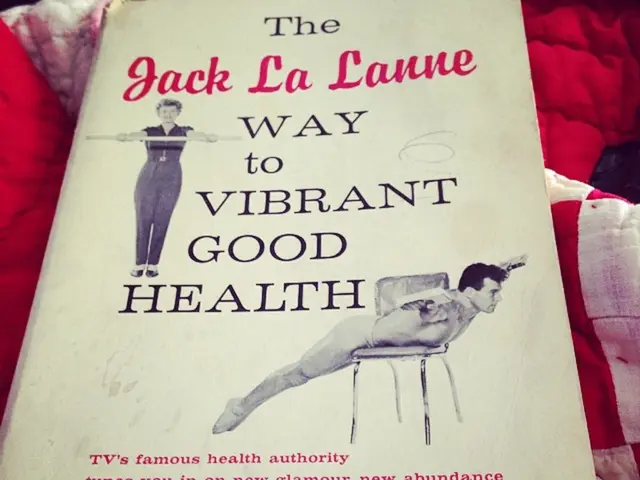Impact of Two Days Without Sleep on One's Physical Well-being
Pull an all-nighter to meet a deadline or cram for an exam? Seems like a good idea at the time, right? But hold up, my friends! That's a slippery slope leading to sleep deprivation – and it ain't pretty. In this sleepless journey, we're delving into the gnarly consequences of going 48 hours, no sleep or more, and strategies to rebound. Buckle up!
Can I Really Go 48 Hours, No Sleep?
Nah, dude. Don't even think about it. Skipping sleep for extended periods leads to a sleep-deprived state, which is a total bummer for both your physical and mental health. It causes cognitive impairment, and you can even experience brief, Scroobius Pip-like moments of unconsciousness called microsleep [1].
What is Sleep Deprivation?
You got it, my friends. It's when you're not catching enough Zs. Adults should snooze around seven to nine hours a night. But of course, some of us need more or less.
Not getting enough shut-eye can lead to a whole mess of health issues, including:
- Anxiety
- Memory impairment
- Mood swings
- Diabetes
- Depression
- Hypertension
- Heart disease
- Excessive daytime sleepiness
- Difficulty concentrating
- Brace yourself - it gets worse
Stages of Sleep Deprivation
It's a wild ride, innit? Let's strap ourselves in and check out the lousy stages sleep deprivation takes us through.
1. First 24 hours without sleep
Twenty-four hours without sleep, and you'll start feeling like crap, my friends. Your alertness and focus will take a nosedive, making you more prone to messing up simple tasks. Studies suggest that skipping sleep for 24 hours is like buzzing with a 0.10% blood alcohol content – beyond the legal limit in the States [3].
2. After 36 hours
We're not even half-way there, but the effects are intensifying. Sleep deprivation has alarming affects on both physical health and mental health. You could experience physical symptoms such as hunger, extreme fatigue, and longing for a snooze. You might even hallucinate or experience microsleep episodes.
3. After 48 hours
Forty-eight hours without sleep? That's extreme sleep deprivation, my friends. It's hard to keep ya peepers open, and you could experience other fun stuff like:
- Depersonalization
- Anxiety
- Extreme mood swings
But wait, it gets better! Your risk for diabetes and chronic diseases increases.
4. After 72 hours
At this point, you'll be craving sleep like a starving bear. Microsleeps will be longer and more frequent. Your perception of reality will get all whacky. Emotions might be all over the place – you could feel irritable, anxious, or even depressed.
Things start to get real scary at this point, my friends. You could see complex hallucinations, have delusions, or experience disordered thinking.
At this point, recovering from sleep deprivation will be a long, arduous journey. Even if you prioritize catching 7-8 hours of sleep each night, you might wake up feeling groggy the next day. Heck, it might take weeks for your body to get back to normal.
5. Being awake for 96 hours or more
The elusive 96-hour mark, my friends. You're officially in danger territory. Your perception of reality can become severely warped, and you might even experience sleep deprivation psychosis. Not only that, but chronic poor sleep can lead to an increased risk for serious health issues like hypertension, heart attack, stroke, diabetes, dementia, and even certain cancers [4].
But don't fear, my friends! These effects are reversible provided you prioritize getting enough restorative sleep. However, it may take a while to recover from long-term sleep deprivation. So, before you decide to sacrifice sleep for work, think twice about the potential consequences.
How Long Does It Take To Recover From Sleep Deprivation?
So, how long till you're back to normal? It depends, my friends. If you snooze 30% less than your body needs for a few days, you might need more than a week to recover. Research suggests that even if it's acute sleep deprivation, it might take longer than expected to fully recover.
Strategies for Surviving Sleep Deprivation
1. Maintain a consistent sleep schedule:
Getting to bed and waking up at the same time every day helps regulates your internal clock and makes it easier to fall asleep.
2. Create a sleep-friendly environment:
Your snooze space should be dark, quiet, and cool – or god forbid, use a white noise machine to block out any annoyances.
3. Make your bed comfortable:
Adjust your pillows and blankets to your liking. It could be the key to drifting off to dreamland faster.
4. Follow a relaxing bedtime routine:
Take a warm bath, stretch, meditate, or lose yourself in a good book. These calming activities are your body’s cue to wind down and get ready for sleep.
If sleep troubles persist, consider consulting with a doctor. Seeking professional help can help you identify any underlying sleep disorders such as obstructive sleep apnea, insomnia, restless leg syndrome, or others.
Conclusion
Skipping sleep for 48 hours can have severe effects on both physical and mental well-being, leading the body and brain into a state of exhaustion with potential long-term consequences. Prioritize good sleep habits to maintain overall health and well-being, and remember – sleep is crucial for your survival, my friends.
Try out the ShutEye app to help you keep track of your sleep patterns and improve your habits for a good night's rest. It's free, so flick on over, my friends! Stay groovy, stay snoozing.
- A state of prolonged sleep deprivation can lead to mental health issues such as anxiety, depression, and mood swings, in addition to physical health problems like hypertension, heart disease, and diabetes [2].
- Some sleep disorders, like insomnia, restless leg syndrome, and sleep apnea, can interfere with a person's ability to get restorative sleep, contributing to overall sleep deprivation [5].
- Science has shown that maintaining good sleep hygiene, such as following a consistent sleep schedule, creating a sleep-friendly environment, and developing a relaxing bedtime routine, can improve sleep quality and reduce the risk of sleep deprivation [2].
- Seeking professional help from a doctor or mental health professional can aid in identifying and treating underlying sleep disorders, ultimately promoting better sleep and overall health-and-wellness [3].








